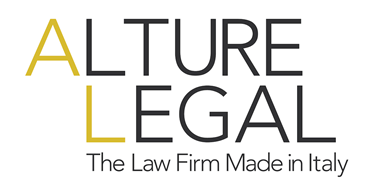What is Mediation?
Mediation
Mediation is a dynamic, structured, and interactive process in which a neutral third party assists disputing parties resolve a conflict through the use of specialized communication and negotiation techniques. All participants in the mediation are encouraged to actively participate in the process. Mediation is a “party-centered” process in that it is focused primarily upon the needs and interests of the parties. The mediator uses a wide variety of techniques to guide the process in a constructive direction and to help the parties find their own optimal solution.
There is rarely any serious downside to mediation. It works not only because it focuses on the parties’ own interests and agendas, but also because it offers the opportunity for parties to efficiently move beyond disputes and shape their own future.
Benefits
Speed
In resolving or narrowing disputes through mediation, the parties avoid the delay of a third party or judicially decided outcome.
Economical
In resolving or narrowing disputes through mediation, the parties also save an enormous amount of time, energy, and expense associated with protracted conflict and litigation.
Recognition
In hearing and being heard in the mediation forum, parties gain the understanding of the other parties’ point of view, and an enhanced opportunity to be heard and understood themselves.
Empowerment
Parties are empowered to decide for themselves whether and how they would like to resolve a situation. This self-determination aspect of mediation often corresponds to higher aspirations of how individuals and businesses want to conduct their lives and do business generally.
Confidentiality
While lawsuits are matters of public record, what transpires at a mediation can be kept confidential by agreement. No matter whether a mediation occurs before or after filing of a lawsuit, any form of communication generated during the mediation is normally inadmissible evidence.
Avoid bad Outcomes
Through mediation, the parties can avoid the “win-lose” and “lose-lose”, outcomes associated with litigation. Even many parties who “win” in protracted litigation often find that the overall time, energy, and monetary commitment associated with litigation comes at an enormous cost and loss. Those who lose in litigation surely feel even worse about such an outcome. Mediation can spare parties from all of this and enable them to move forward from disputes efficiently and effectively.
Quality of Settlement
Studies indicate parties entering into voluntary agreements through mediation are far more likely to adhere to and fulfill commitments made in such agreements than they are with judicially imposed resolutions.
Reality Check Opportunity
In a private caucus, mediation can afford the opportunity to communicate important “reality check” information which may be easier for a party to accept from a neutral.
The bottom line is that mediation works! It works because it brings all necessary parties to the bargaining table where they can “realistically” evaluate their positions and safely explore settlement options. It works in settling over 85% of the cases in which it is utilized, including those where the parties have been unable or unwilling to negotiate, or have taken unrealistic or intransigent positions.
Contact our Consultants
Book a 30-minute free consultation.
Latest News
New FINMA Guidance on Stablecoins
On 26 July 2024, the Swiss Financial Market Supervisory Authority ("FINMA") released its new guidance on stablecoins ("FINMA Guidance 06/2024"). FINMA's Guidance 06/2024 on stablecoins introduces significant regulatory updates for stablecoin issuers and financial...
Implementation of the Electronic Bill of Lading: How Digitalisation Can Create a More Secure Shipping Industry
Implementation of the Electronic Bill of Lading: How Digitalisation Can Create a More Secure Shipping Industry For the reason that international trade transactions implicate various parties, from buyers to sellers, shipowners, charterers, ship’s master or crew,...
New Harmonised EU Patent Rules Tackle Standard Essential Patents
New Harmonised EU Patent Rules Tackle Standard Essential Patents, Compulsory Licensing of Patents, and Revision of Supplementary Protection Certificates Regulations The EU Commission’s proposed Regulations on standard essential patents, compulsory licensing of...
Our Partners







